You are only seeing posts authors requested be public.
Register and Login to participate in discussions with colleagues.
News Showcase
News Items
Requirements to be Deputy Registrar at College of Physicians and Surgeons (CPSBC) – Is something different?
Public
Z. Essak, MD – Vancouver, BC – 2015 Apr 23
 The College of Physicians and Surgeons of BC is looking to hire a new Deputy Registrar with the deadline for applications of April 30, 2015 fast approaching.
The College of Physicians and Surgeons of BC is looking to hire a new Deputy Registrar with the deadline for applications of April 30, 2015 fast approaching.
Is there something different about the experience required in this job posting – “a career opportunity in medical regulation”?
The proven experience and qualifications all candidates should have begins with, "minimum 10 years of senior administrative experience in a complex health-related organization (e.g. regulator, health authority, association, etc.)"
Also the requirements, while including "medical degree preferred", are open to others with "master of business/health administration or law degree also accepted".
Is this a sign of changes or a shift underway at the College (CPSBC)?
Rick Mercer's 2013 Rant - Scientists Muzzled Again
Public
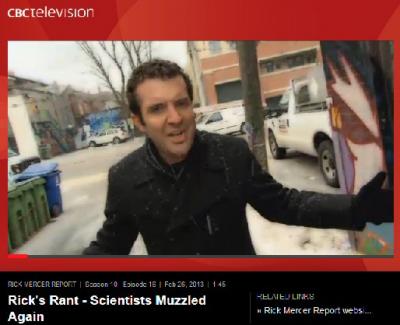
This is one of my favorite Rick's Rants. In less than 2 minutes he lays it all out. Beginning with the problem for scientists then in the middle he turns it up a notch, "Get over yourselves. It's not like scientists are the only ones being told to shut up. No, it's everyone." Then after some fine examples he ends with a polite, "Thank you for not talking." A great entertaining and thought provoking rant.
are you sure you want to drive this car ?
Public
You are done driving your bicycle, as you have successfully completed your race car driving school.
You decide that it is time to buy a car and put your training to use, driving people around, to feed your family, pay your student loans, mortgage etc …
You go to the only car dealerships available, all state owned dealerships, and you have no choice as they have a state sanctioned monopoly.
Has the BC Medical Association been stolen from the members?
Public
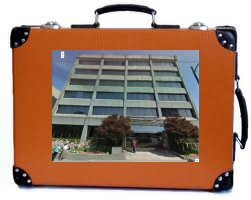 Doctors and members of the BC Medical Association (Doctors Of BC) are asking what is happening at the helm of the BCMA? Some are saying they think the new CEO Allan Seckel is not good for the Association and a sign that bad things are happening to the Association.
Doctors and members of the BC Medical Association (Doctors Of BC) are asking what is happening at the helm of the BCMA? Some are saying they think the new CEO Allan Seckel is not good for the Association and a sign that bad things are happening to the Association.
Who is Allan Seckel? How did he get to be the BCMA CEO? What is he doing as the CEO? And what is the BCMA Board doing?
Disagreement is central to progress
Public
It's never too late to change the world !
 In this TED talks video Margaret Heffernan demonstrates "that disagreement is central to progress, that the best partners aren't echo chambers and how great businesses allow people to disagree".
In this TED talks video Margaret Heffernan demonstrates "that disagreement is central to progress, that the best partners aren't echo chambers and how great businesses allow people to disagree".
http://www.ted.com/talks/lang/en/margaret_heffernan_dare_to_disagree.html
JN Mahy MD FRCSC
Dr Karpiak on Bill Good CKNW - Bureaucracy in health care is not sustainable
Public
Dr Dennis Karpiak, Internist and former BCMA Board Director from the Interior of BC speaking on the Bill Good Show CKNW radio 980 on July 10, 2012.
"It's become increasingly more difficult to sustain a practice in this province."
"The BCMA 20 years ago formed the Regionalization committee that predicted the rise of bureaucracy and a decline in patient care funding."
"Currently you can walk through any hospital and you'll see more administration offices than patient rooms."
Listen to the whole interview.
Burnout and Resilience
Public
Vancouver BC - Oct 19, 2011.
 A talk on burnout in doctors at a recent conference in Vancouver provided good information and stimulated further exploration.
A talk on burnout in doctors at a recent conference in Vancouver provided good information and stimulated further exploration.
During questions the speaker said the prevalence of burnout in doctors is 20 percent and tends to occur in pockets or clusters.
The talk focused on burnout resulting from lack of recognition while caring for others. Although burnout can also result from lack of recognition from colleagues and co-workers, lack of resources, and degree of bureaucracy.
Burnout can also occur in other aspects of our lives besides our work.
Good news from the talk is research shows that when individuals examined their level of burnout and attended to the risk of burnout they were not only able to reduce their current risk but their future risk of burnout continued to remain less and even improved further over time.
Health issues for adults born with cerebral palsy
Public
 What happens to children born with cerebral palsy when they become adults?
What happens to children born with cerebral palsy when they become adults?
In one case an individual born with cerebral palsy when they were an adult in their early 30’s had progressive deterioration of function involving their affected upper limb.
The individual was reviewed by their orthopedic surgeon who suggested botox injections for spasms and possibly some cosmetic improvement to the upper extremity although not optimistic for functional improvement.
The 3D defence; Deny, Delay, Destroy.
Public
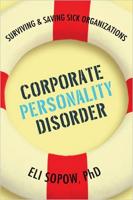 Book Review
Book Review
The book, "Corporate Personality Disorder, Surviving & Saving Sick Organizations" by Eli Sopow, PhD draws heavily on medical practice examples and describes how "at the core of the Organizational Family Tree is the Triangle of Trust, which combines authority, responsibility, and accountability through a harmonious balance of communications, cooperation, and connectivity to others." He offers critical success factors for each of these six factors.



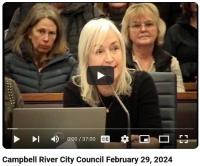
 Dr Z. Essak, MD - Vancouver BC - March 4, 2018
Dr Z. Essak, MD - Vancouver BC - March 4, 2018 You hate those ads and pesky messages from Google, but you’ve become increasingly dependent on their services, right? Cloud storage, Gmail, Google Calendar and so on have just become so necessary that you feel you have to put up with the intrusions on your privacy and constant marketing of 'stuf', and being stalked by trackers everywhere you go? Well, there are alternatives, but one is growing rapidly and can do everything you want and need without those downsides: the eFoundation (Android) operating system.
You hate those ads and pesky messages from Google, but you’ve become increasingly dependent on their services, right? Cloud storage, Gmail, Google Calendar and so on have just become so necessary that you feel you have to put up with the intrusions on your privacy and constant marketing of 'stuf', and being stalked by trackers everywhere you go? Well, there are alternatives, but one is growing rapidly and can do everything you want and need without those downsides: the eFoundation (Android) operating system.
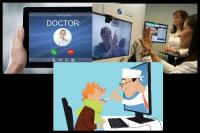 With tongue in cheek some might say it was about time we made more use of the tech we've got and now here we are all using telehealth. What does it mean? What does it look like? How does it work?
With tongue in cheek some might say it was about time we made more use of the tech we've got and now here we are all using telehealth. What does it mean? What does it look like? How does it work? 2019-03-12 Dr Z.Essak, MD - Vancouver, BC
2019-03-12 Dr Z.Essak, MD - Vancouver, BC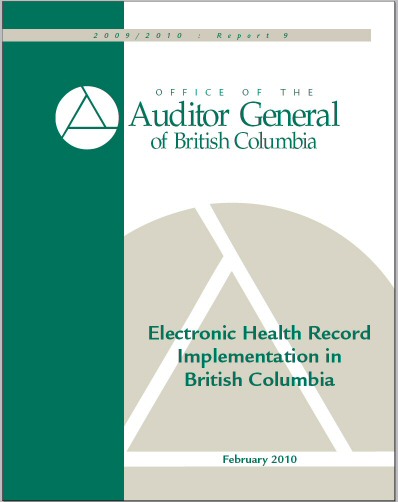
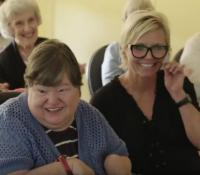 Dr Z. Essak, MD - Vancouver BC - February 16, 2018
Dr Z. Essak, MD - Vancouver BC - February 16, 2018 Have you ever felt overwhelmed by the growing list of names for different generations; boomers, gen-X, millenials, zoomers and what follows? Here are a couple of links that may help.
Have you ever felt overwhelmed by the growing list of names for different generations; boomers, gen-X, millenials, zoomers and what follows? Here are a couple of links that may help. Dr Z. Essak, MD - Vancouver BC - June 6, 2021.
Dr Z. Essak, MD - Vancouver BC - June 6, 2021. Dr Z. Essak, MD - Vancouver BC - August 11, 2021.
Dr Z. Essak, MD - Vancouver BC - August 11, 2021.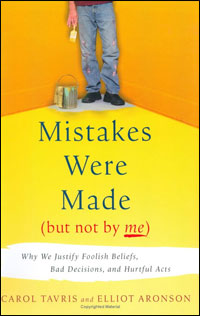 Mistakes were made (but not by me): Why we justify foolish beliefs, bad decisions, and hurtful acts... a book co-authored by Elliot Aronson.
Mistakes were made (but not by me): Why we justify foolish beliefs, bad decisions, and hurtful acts... a book co-authored by Elliot Aronson. When it comes to the privacy of personal health information everyone in British Columbia needs to know how FIPPA (also known as FOIPPA) is different from PIPA, and the same may apply in other jurisdictions across Canada and elsewhere.
When it comes to the privacy of personal health information everyone in British Columbia needs to know how FIPPA (also known as FOIPPA) is different from PIPA, and the same may apply in other jurisdictions across Canada and elsewhere.
